Let’s sublimate the metamorphosis into a stylistic kaleidoscope! Ariadne auf Naxos is one of the happiest collaborations between Hugo von Hofmannsthal and Richard Strauss. Halfway between Der Rosenkavalier and Die Frau ohne Schatten, between mythological characters and those of the commedia dell’arte, Ariadne is the embodiment of the mise en abyme so well known in other works (e.g. Leoncavallo’s Pagliacci) is divided into two parts, each with its own logic: the first theatrical (prologue), the other operatic (a performance resulting from the (ironic) interweaving of the story (which inspired Montervedi as long ago as 1608!) of Ariadne abandoned by Theseus on Naxos and an entertainment by comedians dell’arte).
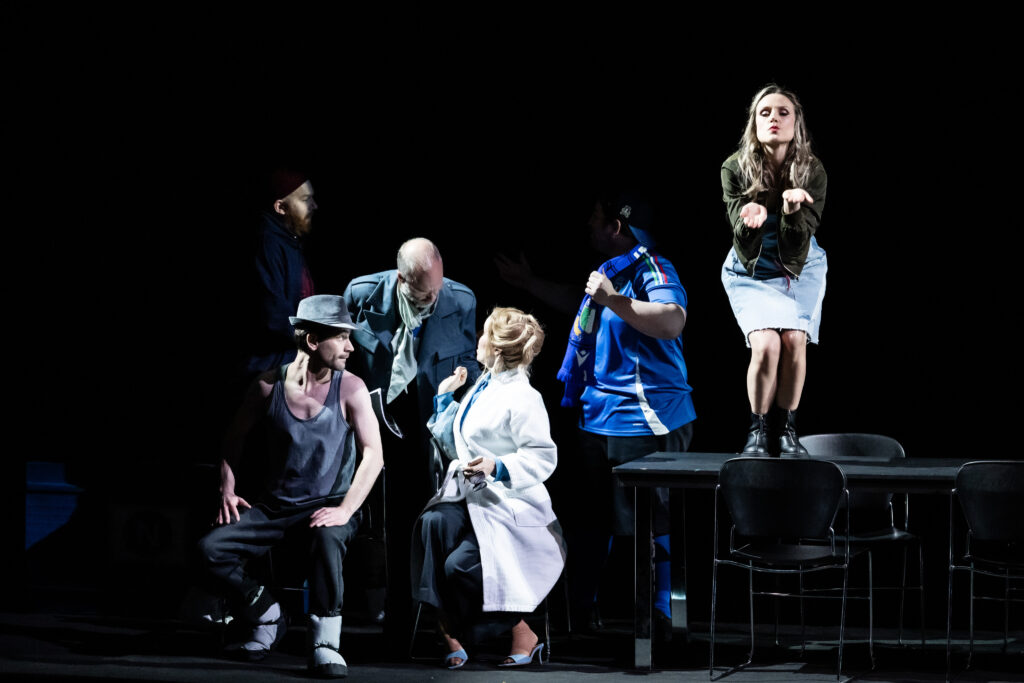
The Opéra de Rouen Normandie has had the good fortune to offer this œuvre (which is less well known to the general public) as the opening of its 2024/2025 opera season. The conductor is the excellent Ben Glassberg (music director of the house and of the Volksoper Wien: listen to the marvels he produces in Huw Montague Rendall’s brand new recording, Contemplation, released in September 2024 by Erato, or his version of the Clemenza di Tito released by Alpha in 2022!). The two directors of Le Lab, an artistic collective founded in Bordeaux in 2009, Jean Philippe Clarac and Olivier Deloeuil, are in charge of the staging. The aim is to explore what goes on behind the scenes in the theatre, as well as the more intimate world of the characters – hence the regular use of videos projected onto the back of the stage (a tool that adds a narrative dimension to the theatrical performance – although, as is customary and unavoidable, it can lead to the audience becoming a little scattered as they are repeatedly asked what is happening on stage, the sounds coming from the pit and the projected images).
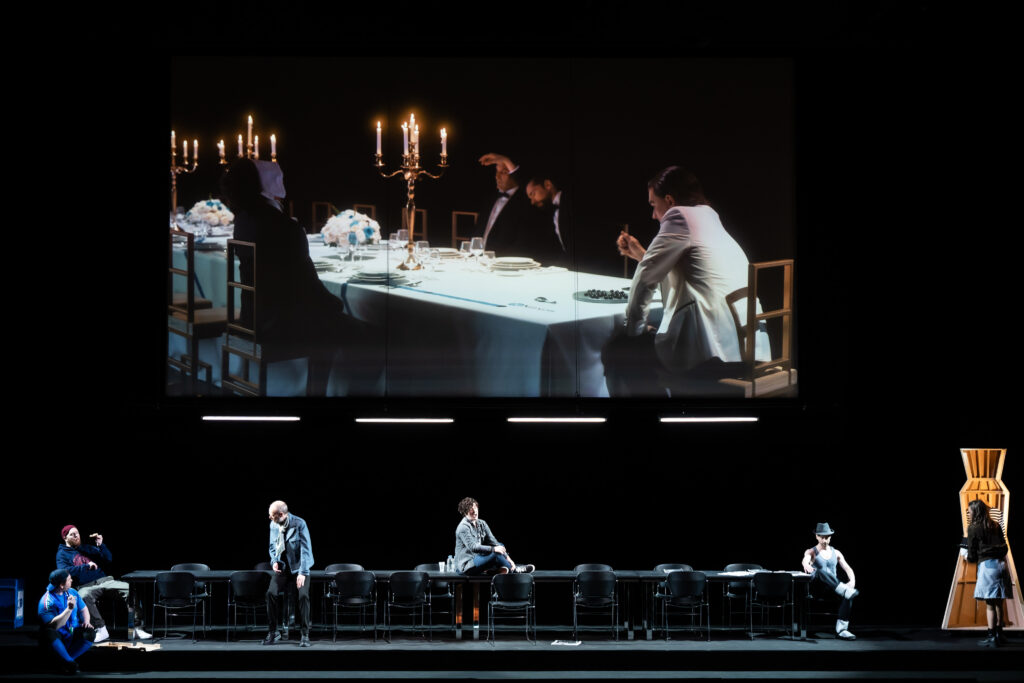
In the Vorspiel, the score makes it clear that this is the playing space of the Komponist, played by the excellent Paula Murrihy. There is a sincere naivety in her performance (sometimes a little excessive, but not detrimental to the credibility of the story) that makes the character very endearing, from beginning to end (unlike most stagings, the Komponist takes part in Act 1 as a mute character, assisting the singers during the performance of Ariadne before Fabien Leriche’s Haushofmeister). Vocally, all the elements required by the role – and specific to the tessitura of a mezzo – are in place to take on, with perfect legitimacy, the main character of the first part of the work. Although she has not yet had the opportunity to perform a large number of Straussian roles, it is admirable to see the ease with which she has become so familiar with the idiosyncrasies of Strauss’s music and musical conversation. Accompanied by Caroline Wettergreen’s Zerbinetta, Paula Murrihy offers the audience one of the most touching moments in the work, in the sequence preceding the final of the prologue (a truly candid Süsses, unbegreifliches Mädchen!).

The Norwegian soprano Caroline Wettergreen sings, for the first time in her successful career, the overwhelming role of Zerbinetta (certainly, for a variety of reasons perceptible from the very first moments of the opera, the most complex in the work). The talents and resources of this coloratura soprano have already been and continue to be warmly praised, combined with an ability (worthy of a true actress) to integrate with the directors’ vision and a commitment that deserve to be mentioned. From Lucia to Ariel (The Tempest by Thomas Adès), including Ophélie in Hamlet and Königin der Nacht, her repertoire is vast and rich. Although she was a little reserved about the madness one expects to see on stage during Zerbinetta’s (many!) entrances, everything she showed was done with a perfect awareness of the libretto’s message and a strict respect for a score that forces the performer to have military discipline, on pain of compromising her vocal instrument.
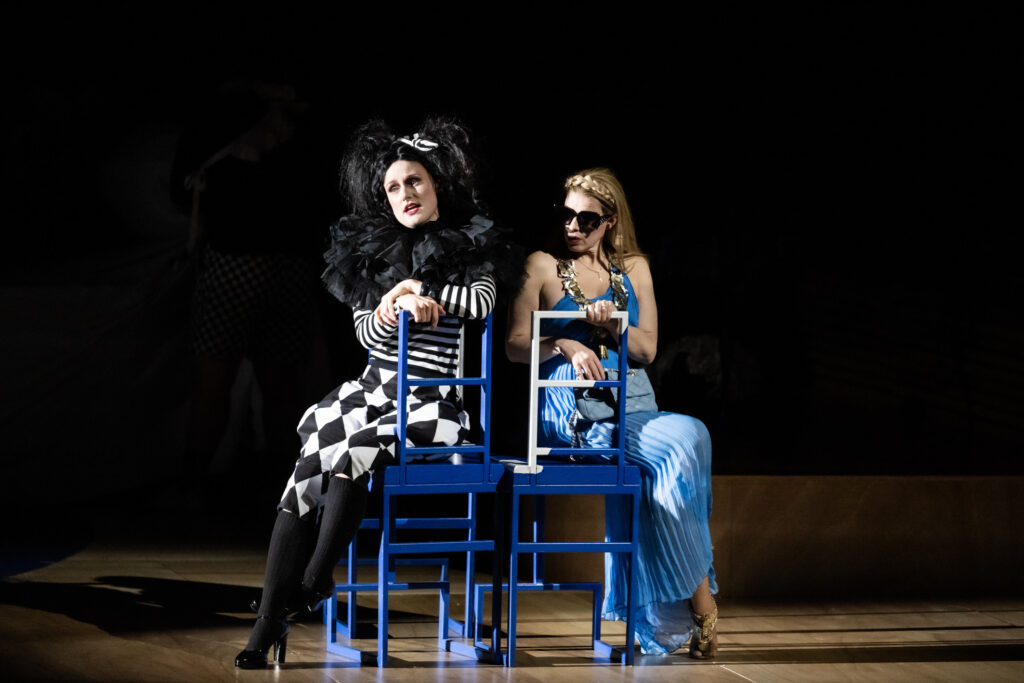
For Sally Matthews, this is also her first role as Primadonna/Ariadne. This dramatic soprano knows how to wrap her two characters in the self-mockery required by the score and to nuance the evolution of her feelings from the beginning to the end of the work. Her long monologue Es gibt ein Reich is unfailingly clear and powerful, with a melodic line that is perfectly discernible throughout the nearly 10-minute aria and supported by a gleaming orchestration. The end of the opera, marked by his long dialogue with Bacchus, is of crystalline beauty, and we really believe in the transformation undergone by the character and announced in the programme.
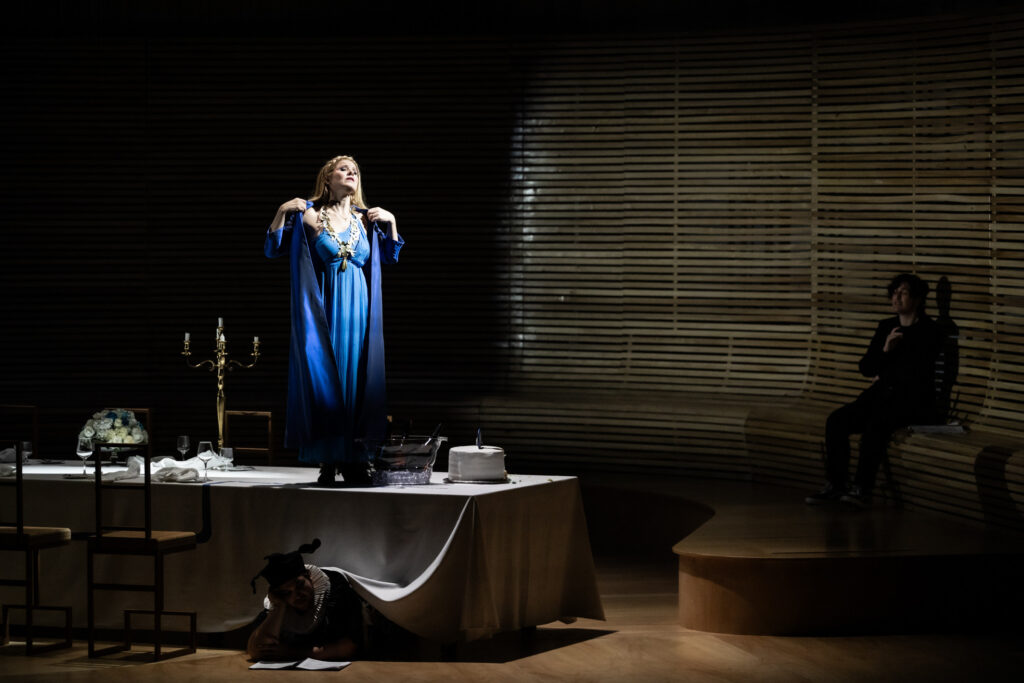
John Findon’s endlessly hilarious Tenor/Bacchus, caricatured to the point of speechless participation, authoritatively embodies Strauss’s unsympathetic view of the primi uomini (so well highlighted in the Lab’s staging). This reinforces the pleasant surprise of hearing the strength as well as the suppleness of this soft and enveloping voice (which can be quite Dionysian at times), particularly from his Circe, kannst du mich hören? in Act 1. The other roles are performed by a cast brimming with attributes, notably the Jesters and the Nymphs. It’s great theatre that we love to see in a play where everything, or a large part of everything, is about the ambivalence between two arts that call upon and complement each other.
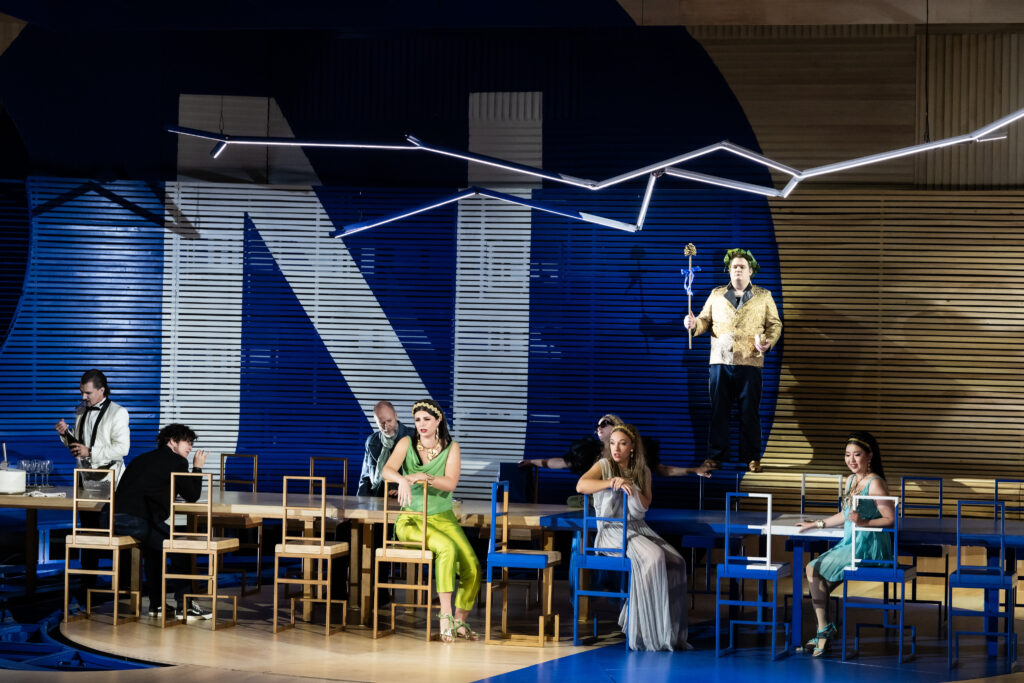
However, the big surprise of the evening came from the pit: the orchestra of the Opéra de Rouen Normandie, conducted by Ben Glassberg. No more than thirty musicians, but what ardour, what impetuosity, what finesse! Which begs the question: are they seasoned Mozartians with a frankly Wagnerian inspiration (as can be glimpsed in the extravagant prologue) or Wagnerians soothed by the Mozartian spirit that runs through the score? The ambiguity will remain throughout the evening: we will leave the salle without a precise answer, but… qu’importe! It only adds to the spellbinding charm of this sophisticated interpretation of one of Strauss’s most unclassifiable works. The symbiosis between the pit and the stage is obvious, and this is reinforced by the almost childlike ease with which we identify the specific themes of each character.
A twofold work in more ways than one, where the boundaries between parody and seriousness are more tenuous than one might imagine, Ariadne auf Naxos remains an opera whose production is a challenge from every point of view. We applaud the Opéra de Rouen Normandie and the team involved in this fine production for rising to this challenge with flying colours.
Casting: Primadonna/Ariadne (Sally Matthews), der Tenor/Bacchus (John Findon), der Komponist (Paula Murrihy), Zerbinetta (Caroline Wettergreen), Brighella/Tanzmeister (Grégoire Mour), Scaramuccio/Ein Offizier (Robert Lewis), Ein Lakai/Ein Perückenmacher/Harlekin (Leon Košavić), Truffaldin (David Shipley), Ein Musiklehrer (William Dazeley), Najade (Yerang Park), Echo (Clara Guillon), Dryade (Aliénor Feix), der Haushofmeister (Fabien Leriche).
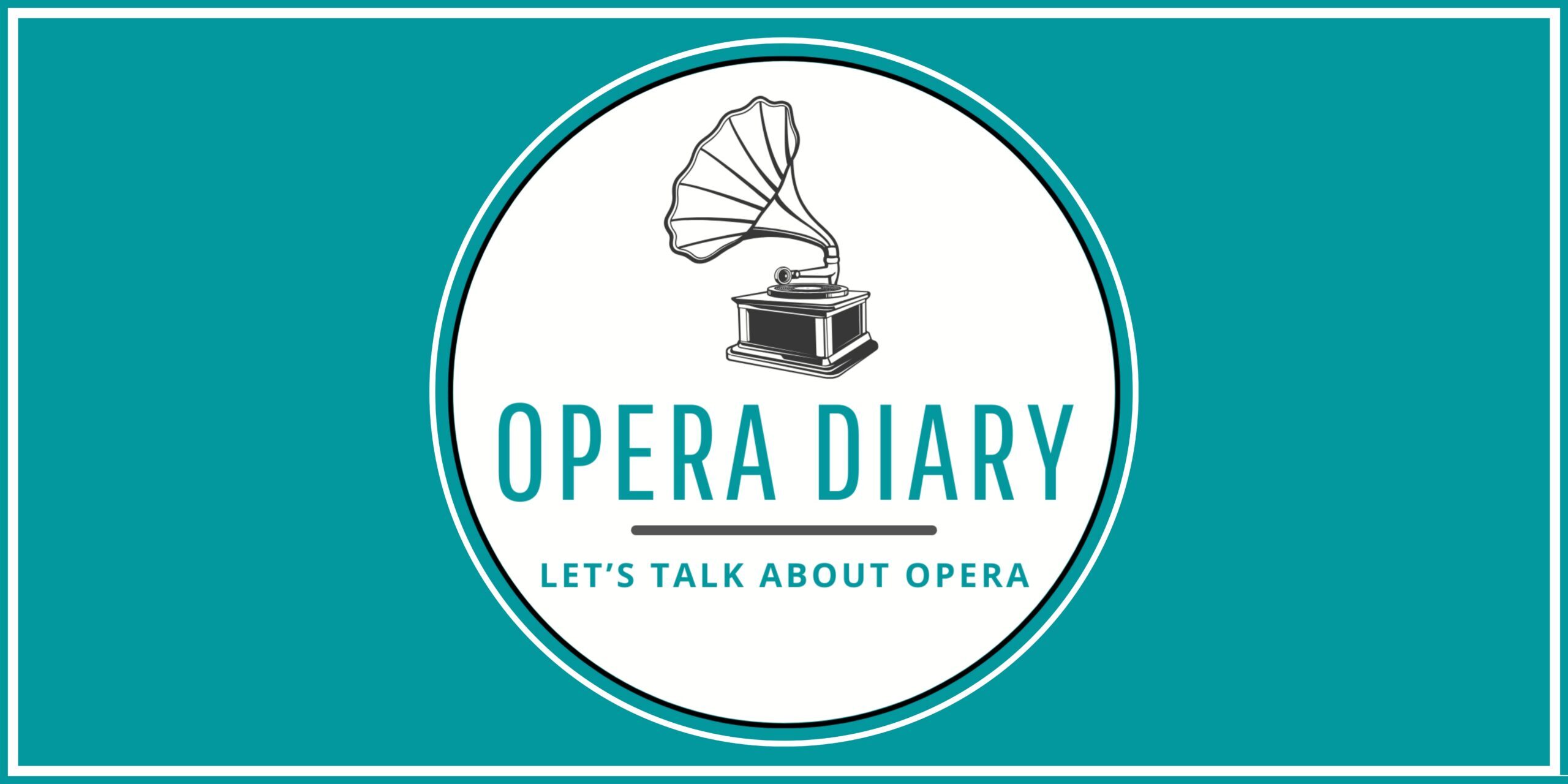
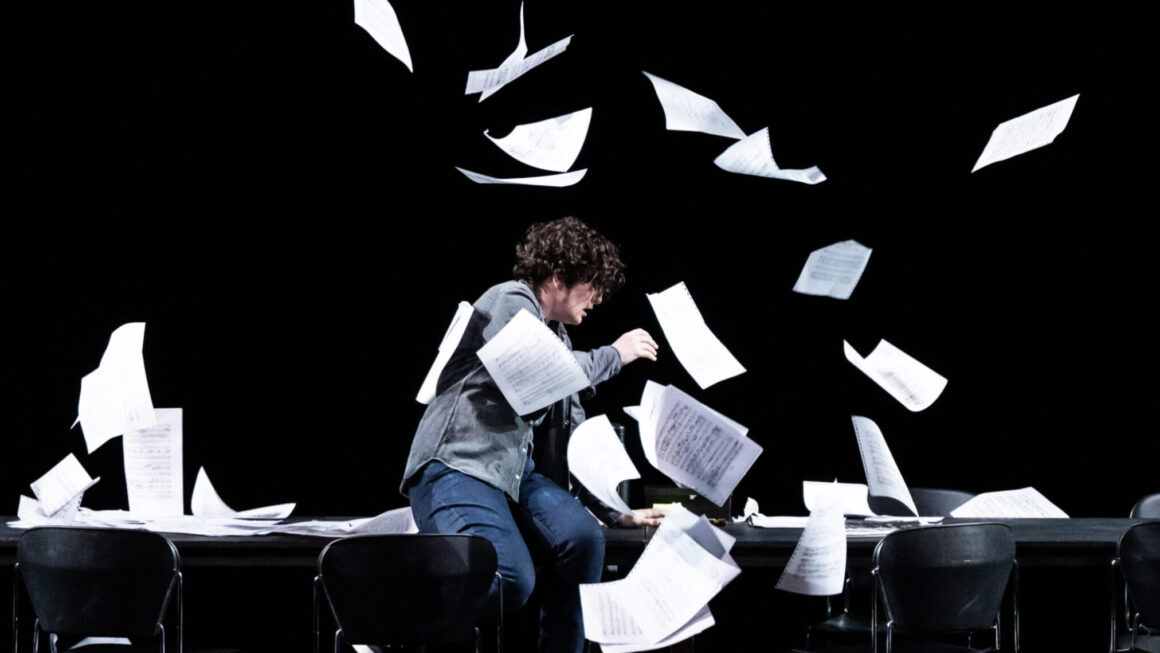
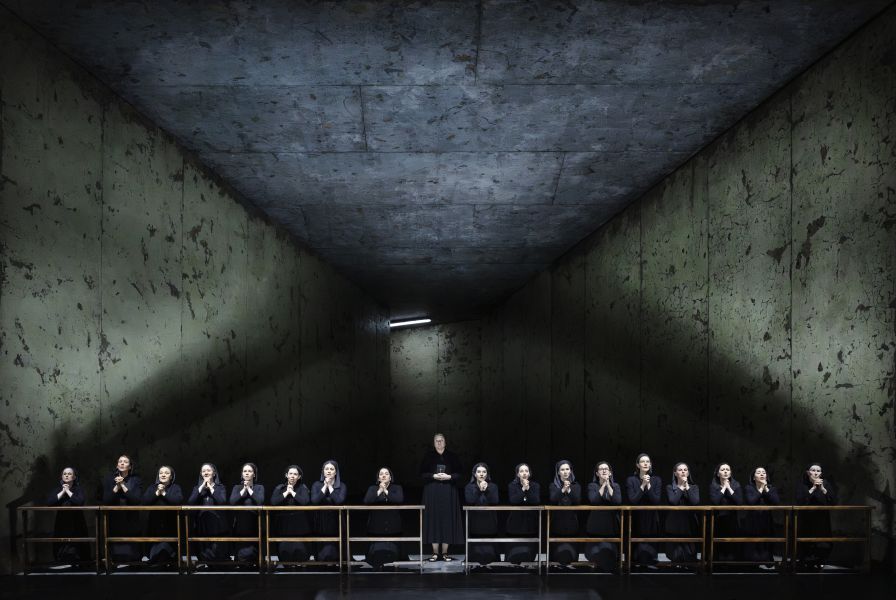
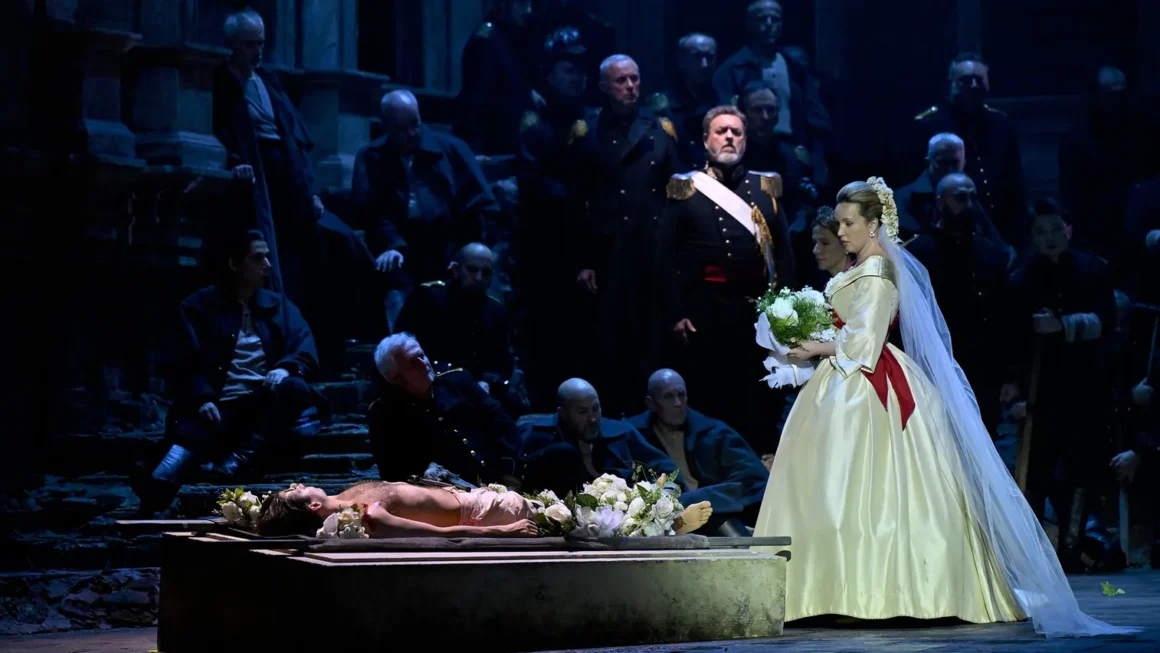
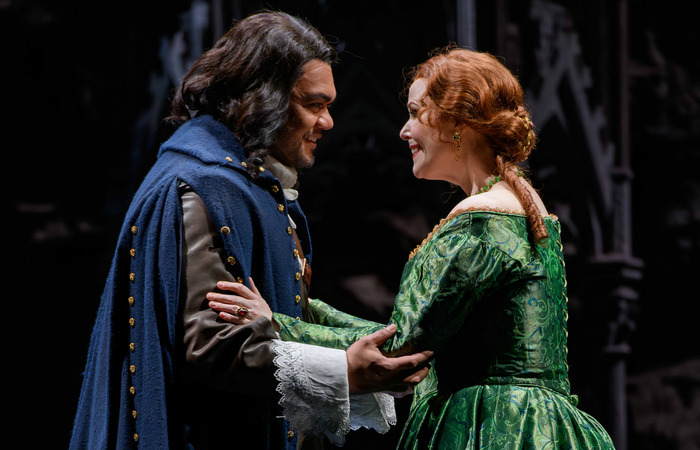
One thought on “ARIADNE AUF NAXOS | Opéra de Rouen Normandie”